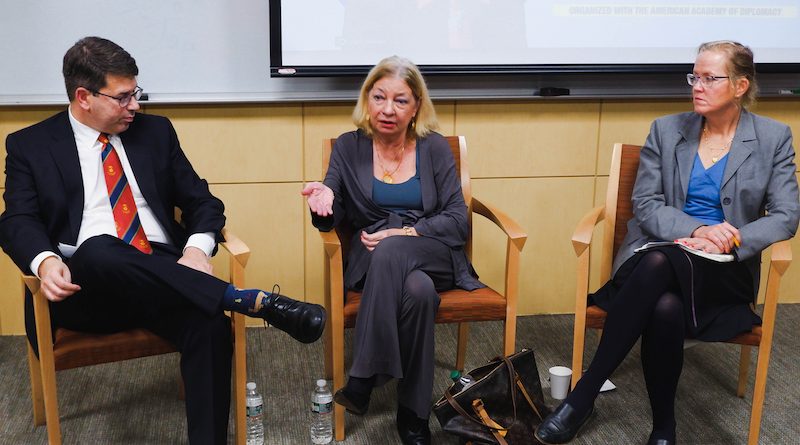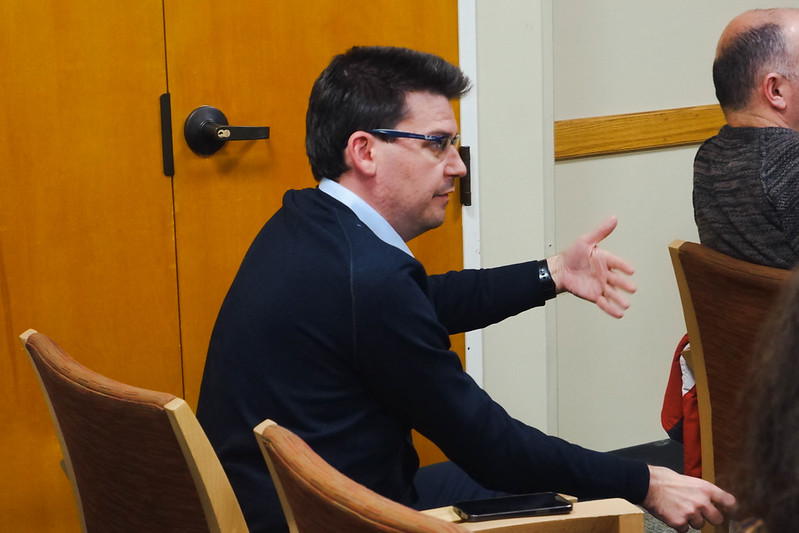Central Asia: A Battleground for Great Power Competition
By Alex Thomas, MALD 2023 Candidate, The Fletcher School
Since the collapse of the Soviet Union, Central Asia has experienced one of the most volatile and unstable periods in its history. It has earned a reputation for regional violence, authoritarianism, instability, and ethnic conflicts alike, stemming from regional conflicts such as the 1992 civil war in Turkmenistan, the 2010 Melon revolutions in Kyrgyzstan, and the 2022 Bloody January in Kazakhstan. One major aspect of the geopolitics of Central Asia relates to the emerging great power competition in the region between Russia and China. Historically, Central Asia has been an imperial conquest of Russia, dating back to the late 19th century when it was first integrated into the Russian empire. However, in the post-Soviet context, China has been expanding its economic relations with the region as a means for consolidating its own power. This new age of competition is further compounded by the fact that not one Central Asian country supported Russia at the United Nations when it first invaded Ukraine in February.
To make sense of this competition and to help elucidate the United States’ role in it, The Fletcher School’s Russia and Eurasia Program partnered with the American Academy of Diplomacy to host a conversation with Ambassador Tatiana Gfoeller, the former U.S. Ambassador to Kyrgyzstan from 2008 to 2011. The event built upon a podcast episode of ”The General and The Ambassador,” in which General Holt and Ambassador Gfoeller speak about the 2010 Melon revolution, which involved violent ethnic cleansing occurred in the southern regions in Kyrgyzstan. The conversation at Fletcher was moderated by Monica Toft, director of the Center for Strategic Studies at Fletcher, and Daniel Drezner, co-president of the Russia and Eurasia Program.
The conversation began with opening remarks from Ambassador Gfoeller about the inception of her diplomatic career.
“Originally, my focus was the USSR, which certainly dates me a little bit. Then and now, I was very committed to combating what I saw as the oppression of nations, of religions, of ethnicities, of economies, by the communist regime in the USSR. One of my first postings was in Moscow from 1989 to 1991, and I have long been very proud of contributing, even if just to a small degree, to the breakup of the Soviet Union and the breakup of communism and that very oppressive totalitarian ideology.”
Afterwards, Professor Drezner asked the ambassador to speak about her time in Central Asia and her eventual posting as U.S. ambassador to Kyrgyzstan.
“My first posting in the Central Asian region was Turkmenistan, which is sometimes referred to as ‘the hermit kingdom’ because of how very isolated it is. I was there as the deputy ambassador, which we in the state department see as a type of ‘grooming’ for future ambassadors. Turkmenistan taught me a lot about Central Asia and the ethnic groups there, which certainly contributed to my selection as ambassador to Kyrgyzstan.”
Ambassador Gfoeller then spoke about her posting to Kyrgyzstan, and how the timing of her appointment coincided with one of the worst ethnic conflicts in the region. After the Melon Revolution, which saw the Kyrgyz president flee the country, a power vacuum opened throughout the country. Shortly after, the southern region of Kyrgyzstan underwent a period of ethnic cleansing and instability which resulted in 2,000 deaths and nearly 100,000 displaced, the vast majority of which were Uzbek.
“After the ethnic cleansing stopped, the OSCE (Office for Security and Co-operation in Europe) came in to strengthen the police and diplomatic institutions in Kyrgyzstan to make sure something like this never happened again. Later, Kyrgyzstan had its first free and fair elections, and out of this great tragedy came an affirmation that diplomacy can help work toward the greater good.”
Professors Drezner and Toft then turned the discussion towards the ambassador’s experience during the Melon revolution, and the instrumental role that she played in keeping the Manas air base open. At the time, the airbase hosted U.S. and Western aircraft en-route to Afghanistan and was strategically crucial for U.S. strategy in the region.
Reflecting on the event, Professor Toft highlighted how “the event showcased the importance of diplomacy not only at the global and regional level, but also in managerial terms as Ambassador Gfoeller shared some of her most memorable moments in the State Department.”


